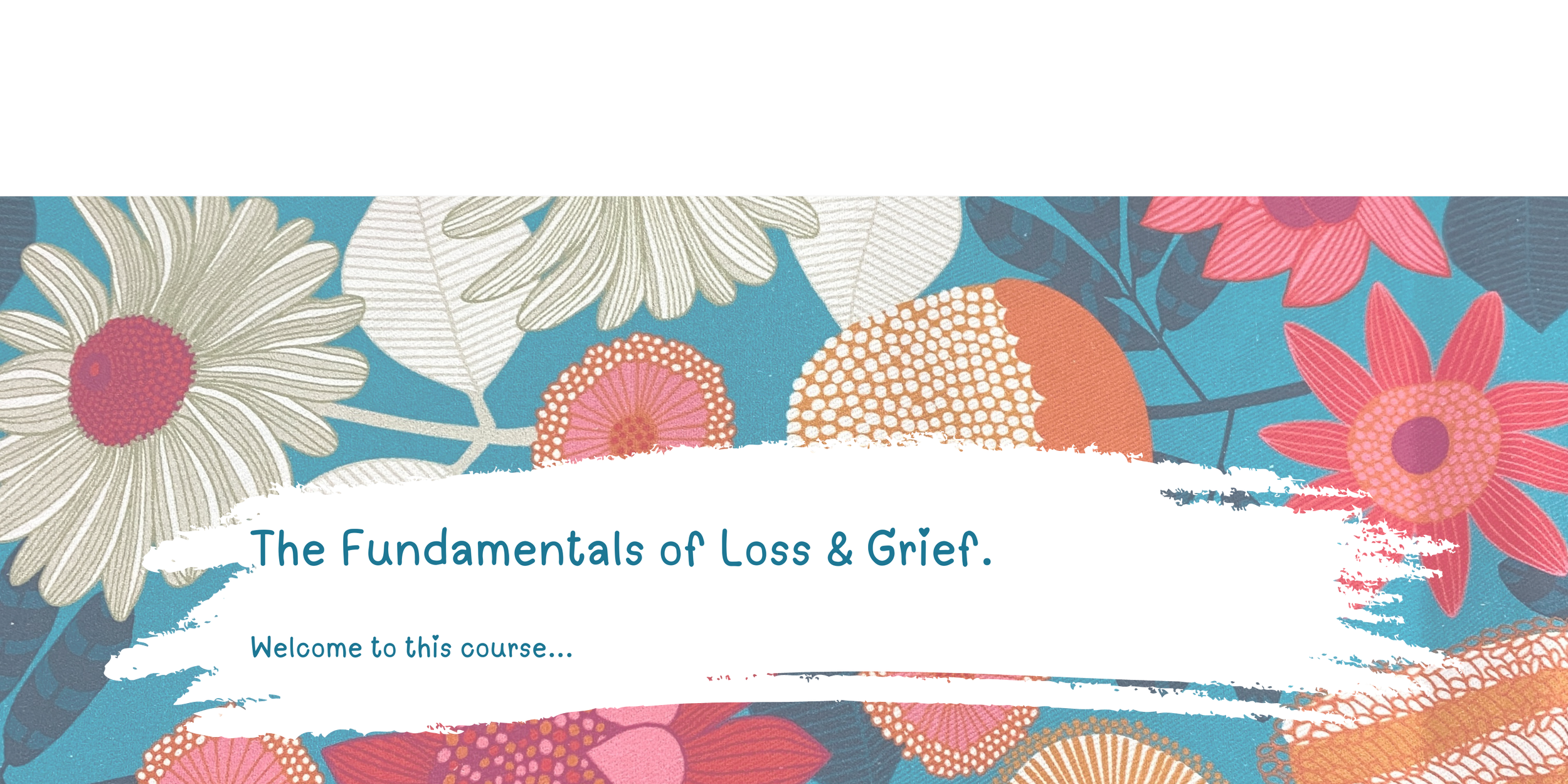
Welcome
Nau mai, haere mai…. Welcome to the Fundamentals of Loss & Grief. I hope that you will find it informative, enriching, relevant and that it helps to extend your understanding of loss and grief.
Below is an overview of this course and the main outcomes for each module.
Each module will have some reading, a short lecture video/presentation, and then we will come together via zoom for a 60-90 minute in-person deep-dive discussion lab to discuss the learning, a chance for you to ask questions and get curious by diving deeper into whatever topic interests you the most from the module. Where relevant, each module will have a list of extra reading/resources for you to explore further if something in particular captures your interest.
In this course we go at your pace. Modules will appear on your personal webpage the day after our deep-dive discussion lab. I know life happens and we can be flexible, however it would be great to commit to regular sessions. Labs will be scheduled fortnightly on a date/time that works for you. Let’s confirm these in our first session. If a particular module is taking longer than planned, just get in touch and we will reschedule if we need to.
-
Definitions of loss, grief & grieving
how to identify loss & why it’s important
Different perspectives of loss
Different styles of grieving
-
Explore the various theories of grief and meet some of the key influencers and researchers from historical through to contemporary
-
Other cultural beliefs and practices
So many different cultures to explore and so much to learn
-
Age & stage of development & understanding of grief
Helping grieving children, adolescent, adults and the elderly
What children & adolescents need
What adults & elderly need
-
Suicide
Violent Deaths (war, crime, terrorism)
Accidents & natural disasters
Death of baby during pregnancy or at birth (or soon after)
Dementia & life threatening illness diagnosis
-
Skills conducive to being a good care provider
Techniques for intervention
Exploring your own grief & loss
Self-care and support tools & strategies
ACT skills
Compassion
Further education
-
How to recognise PGD
Why is it important to be able to recognise PGD
-
If I want to learn more then were to from here?
